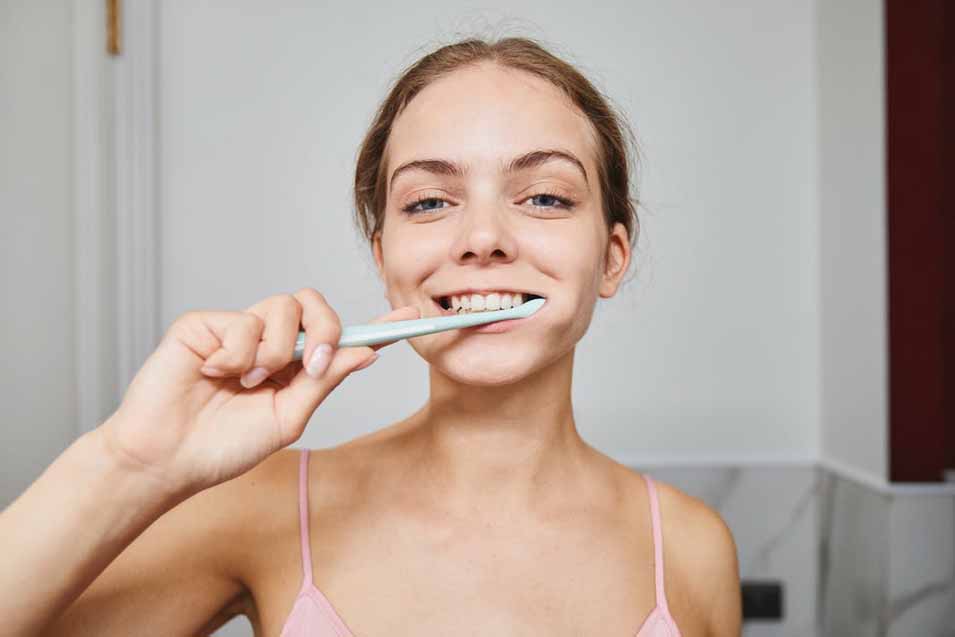
Struggling to look after your mouth’s health? You are not alone! While everyone is taught to brush and floss their teeth regularly, finding an oral health routine that works for your needs isn’t always so straightforward.
After all, every person’s lifestyle and mouth health is unique, and the same habits might not work as well for everyone.
So, what can you do to reduce the risk of dental emergencies and chronic conditions and support your overall health?
Here is a quick-start guide to improving your oral health – starting today!
Learn How To Take Care of Your Teeth
While brushing teeth should be a normal part of everyone’s daily routine, over a third of the adult population admit to only doing so once a day or less. But beyond just making your breath smell fresh, taking proper care of your mouth goes a long way towards achieving overall health.
Some of the oral hygiene habits that should be a consolidated part of your daily routine include:
- Brushing your teeth twice a day with fluoride toothpaste
- Brushing your teeth for at least two minutes – or four seconds per tooth!
- Practicing interdental cleaning once a day – or use floss, interdental brushes, and irrigators to clean between your teeth
- Using mouthwash to rinse your mouth
- Using a tongue scraper to remove bacteria from the tongue
Speak To Your Dentist For Personalized Recommendations
According to the CDC, 40% of US adults report experiencing a toothache in the past year, and over 80% reported a cavity, translating to over $45 billion lost in productivity due to dental emergencies.
While maintaining a solid oral health routine might seem easy at first, statistics show that dental problems are more common than ever. That is why the American Dental Association (ADA) recommends dentists to provide individualized oral care guidelines to each patient to reduce the burden of caries, pain, and gingivitis.
If you suspect that your current oral care routine isn’t working so well for your needs and goals, consider asking a trusted dentist for tailored recommendations.
Make Sure You Have Good Quality Dental Insurance Too
When it comes down to maintaining good oral health, a major role is played by care consistency. This means that you’ll need to keep up with your bi-yearly checkups, cleanings, and examinations, as well as have access to emergency care should a problem arise.
Investing in a comprehensive dental insurance plan that covers preventive, simple, and complex dental procedures is the most efficient way to help you count on ongoing, uninterrupted care.
Pro tip – not all insurance plans are created equal. Compare options and plans to find the best value for money by using online dental insurance comparison tools like Dentalinsurance.com.
Improve Your Diet And Make Healthier Lifestyle Choices
Your diet impacts all aspects of health – not excluding your mouth’s wellbeing. According to studies, a high intake of sugary foods and drinks can lead to the development of caries, cause enamel erosion, and increase the risk of tooth decay.
Other lifestyle factors that can negatively impact your oral health include smoking tobacco, drinking alcohol, and not drinking enough water. These habits can disrupt the mouth’s environment, causing the proliferation of harmful bacteria and leading to dental issues like periodontal disease, tooth decay, and tooth loss.
Invest In Better Oral Care Products
Just like you invest in the highest-quality products for your skin, hair, or food, you should not think twice about upgrading the oral care products in your cabinet.
Some of the must-haves include an electric toothbrush, floss or an oral irrigator, and alcohol-free mouthwash. Make sure to follow the recommendations of your dentist regarding how often to change your toothbrush.
If you find yourself at a loss, don’t hesitate to get in touch with a trusted dentist!
Aside from helping you address current oral health issues, a professional can also deliver preventive care and guide you in the process of building a solid home oral health care routine.
